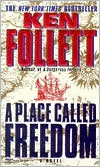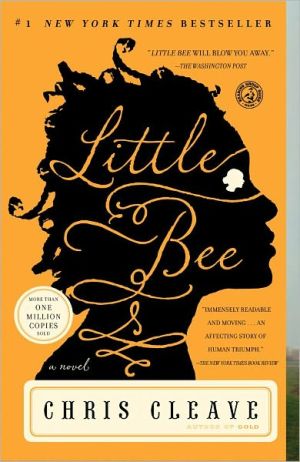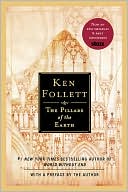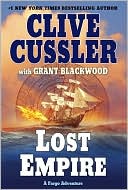A Place Called Freedom
Sentenced to a life of misery in the Scottish coal mines, twenty-one-year-old Mack McAsh hungers for escape. His only ally: beautiful high-born Lizzie Hallim, who is trapped in her own kind of hell.\ In 1766, from the teeming streets of London to the infernal hold of a slave ship headed for the American colonies to a sprawling Virginia plantation, two restless young people, separated by politics and position, are bound by their search for a place called freedom....\ \ \...
Search in google:
Sentenced to a life of misery in the Scottish coal mines, twenty-one-year-old Mack McAsh hungers for escape. His only ally: beautiful high-born Lizzie Hallim, who is trapped in her own kind of hell.In 1766, from the teeming streets of London to the infernal hold of a slave ship headed for the American colonies to a sprawling Virginia plantation, two restless young people, separated by politics and position, are bound by their search for a place called freedom....Publishers WeeklyThe key to Follett's absorbing new historical novel (after A Dangerous Fortune) lies in words that ``made a slave of every Scottish miner's son'' in the 1700s: ``I pledge this child to work in [the laird's] mines, boy and man, for as long as he is able, or until he die.'' When young Malachi (Mack) McAsh challenges this practice, citing its illegality, he begins a pattern of rebelling against authority while pursuing justice. Mack's dangerous quest for freedom makes him a fugitive in High Glen, where he is brutally punished by Sir George Jamisson in retaliation for his intention to quit the mines. After escaping to London, Mack confronts injustice again when he tries to break the monopoly of ``undertakers,'' who furnish crews to unload coal from ships; arrested and tried, he is transported to Virginia as an indentured servant. All this time, his fate is intertwined with that of Lizzie Hallim, daughter of the impoverished laird of High Glen, who is as spirited, independent-minded and daring as is Mack himself. (Readers may not quite believe her sexual aggressiveness, but Follett knows how to strike chords with feminists.) But Lizzie is gentry, so she must marry Jay, the younger Jamisson son. Follett adroitly escalates the suspense by mixing intrigue and danger, tinged with ironic complications. He also provides authoritative background detail, including specifics about the brutal working conditions of mine workers and coal heavers and the routine of an American tobacco plantation. History is served by references to real-life English liberal John Wilkes, who challenged the established view that the virtual enslavement of ``common'' men by aristocrats was God's will, and events in Virginia as the Colonies move toward rebellion. If the dialogue sometimes seems lifted from a bodice-ripper, and if far-fetched coincidences keep flinging Lizzie and Mack together, these flaws are redeemed by Follett's vigorous narrative drive and keen eye for character. BOMC and QPB main selections.
Mack was in one of the common wards of Newgate Prison.\ He could not remember all that had happened to him the night before. He had a dazed recollection of being tied up and thrown across the back of a horse and carried through London. There was a tall building with barred windows, a cobbled courtyard, a staircase and a studded door. Then he had been led in here. It had been dark, and he had not been able to see much. Battered and fatigued, he had fallen asleep.\ He woke to find himself in a room about the size of Cora's apartment. It was cold: there was no glass in the windows and no fire in the fireplace. The place smelled foul. At least thirty other people were crammed in with him: men, women and children, plus a dog and a pig. Everyone slept on the floor and shared a large chamberpot.\ There was a constant coming and going. Some of the women left early in the morning, and Mack learned they were not prisoners but prisoners' wives who bribed the jailers and spent the nights here. The warders brought in food, beer, gin, and newspapers for those who could pay their grossly inflated prices. People went to see friends in other wards. One prisoner was visited by a clergyman, another by a barber. Anything was permitted, it seemed, but everything had to be paid for.\ People laughed about their plight and joked about their crimes. There was an air of jollity that annoyed Mack. He was hardly awake before he was offered a swallow of gin from someone's bottle and a puff on a pipe of tobacco, as if they were all at a wedding.\ Mack hurt all over, but his head was the worst. There was a lump at the back that was crusted with blood. He felt hopelessly gloomy. He had failed in every way. He had run away from Hugh to be free, yet he was in jail. He had fought for the coal heavers' rights and had got some of them killed. He had lost Cora. He would be put on trial for treason, or riot, or murder. And he would probably die on the gallows. Many of the people around him had as much reason to grieve, but perhaps they were too stupid to grasp their fate.\ Poor Esther would never get out of the village now. He wished he had brought her with him. She could have dressed as a man, the way Lizzie Hallim did. She would have managed sailors' work more easily than Mack himself, for she was nimbler. And her common sense might even have kept Mack out of trouble.\ He hoped Annie's baby would be a boy. At least there would still be a Mack. Perhaps Mack Lee would have a luckier life, and a longer one, than Mack McAsh.\ He was at a low point when a warder opened the door and Cora walked in.
\ Publishers Weekly - Publisher's Weekly\ The key to Follett's absorbing new historical novel (after A Dangerous Fortune) lies in words that ``made a slave of every Scottish miner's son'' in the 1700s: ``I pledge this child to work in [the laird's] mines, boy and man, for as long as he is able, or until he die.'' When young Malachi (Mack) McAsh challenges this practice, citing its illegality, he begins a pattern of rebelling against authority while pursuing justice. Mack's dangerous quest for freedom makes him a fugitive in High Glen, where he is brutally punished by Sir George Jamisson in retaliation for his intention to quit the mines. After escaping to London, Mack confronts injustice again when he tries to break the monopoly of ``undertakers,'' who furnish crews to unload coal from ships; arrested and tried, he is transported to Virginia as an indentured servant. All this time, his fate is intertwined with that of Lizzie Hallim, daughter of the impoverished laird of High Glen, who is as spirited, independent-minded and daring as is Mack himself. (Readers may not quite believe her sexual aggressiveness, but Follett knows how to strike chords with feminists.) But Lizzie is gentry, so she must marry Jay, the younger Jamisson son. Follett adroitly escalates the suspense by mixing intrigue and danger, tinged with ironic complications. He also provides authoritative background detail, including specifics about the brutal working conditions of mine workers and coal heavers and the routine of an American tobacco plantation. History is served by references to real-life English liberal John Wilkes, who challenged the established view that the virtual enslavement of ``common'' men by aristocrats was God's will, and events in Virginia as the Colonies move toward rebellion. If the dialogue sometimes seems lifted from a bodice-ripper, and if far-fetched coincidences keep flinging Lizzie and Mack together, these flaws are redeemed by Follett's vigorous narrative drive and keen eye for character. BOMC and QPB main selections.\ \ \ \ \ Library JournalFollett's latest (following A Dangerous Fortune, Delacorte, 1993) begins in the coal-mining region of 18th-century Scotland. The author convincingly evokes the grim, hard life of the miners, one of whom defies the brutal authority of the owner and is forced to flee. Mack ends up in London, but more defiance causes him to be deported to the American Colonies. Characters, whom he seems to find no matter where he goes, are Jay Jamisson, the weak-willed and bitter younger son of Sir George Jamisson, owner of the Scottish mines, and Lizzie, Jay's spunky, soft-hearted wife, who soon realizes what a horrid man she has married. The characters are stereotypes and coincidental meetings abound, but the historical picture of suffering and of injustice done to the poor is well drawn. Also, the writing has a certain verve and energy that keeps the reader interested. Recommended for most collections. [Previewed in Prepub Alert, LJ 5/15/95.]-Patricia Altner, Information Seekers, Bowie, Md.\ \ \ Kathy BroderickFollett's newest story of adventure and love tells of two strong people--a man and a woman--destined to be together. In Scotland in 1767, Mack McAsh is a coal miner on the property owned by Sir George Jamisson. As a coal miner with the ability to read and the drive to be free, Mack proves to be no small problem for the Jamisson family. After exposing the illegality of the mining system, Mack is collared and publicly humiliated, and he flees to London, dismayed to discover a whole new set of hardships and inequities there. The youngest Jamisson son has also moved to London with his new bride, Lizzie Hallim, a spunky beauty who's ahead of her time. She was a childhood playmate of Mack's, and when she runs into him in London, where he has already become a local political hero, she feels the old attraction for him. Lizzie and Mack help each other--despite their different loyalties and social classes--out of various scrapes, ultimately landing in America, where their love develops and Mack's dream of freedom now includes Lizzie. It's no Eye of the Needle (1978), but as usual with Follett, the action and the tension should keep fans happily turning pages.\ \ \ \ \ From Barnes & NobleSpanning two continents, here is the story of two Scottish lovers whom events bring together but society keeps apart. A saga of slavery and freedom, and of a passion that transcends history, class, and the frontiers of the New World.\ \








